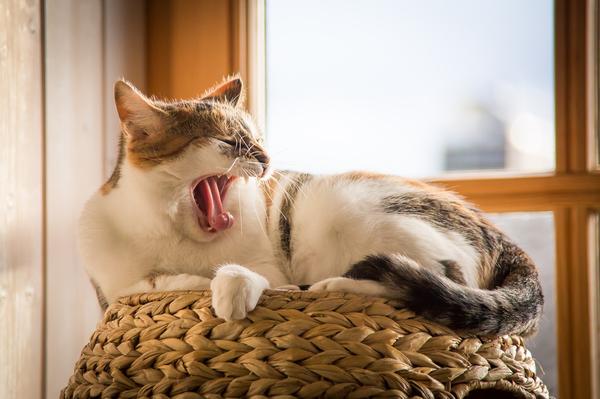Can You Use HUMAN Shampoo on Cats? Should You?

Let me know if you agree:
Worried about washing your precious feline friend with the wrong shampoo?
You've probably heard all sorts of horror stories about cats losing fur, breaking out in rashes or worse.
It's enough to make your skin crawl just thinking about it, isn't it? 😱
No one wants to hurt their beloved kitty.
But hey, let's be honest, it's time to separate fact from fiction and get down to the truth.
Shall we dive in?
Is It OK to Bathe a Cat With Human Shampoo?
Don't even think about using human shampoo on your cat. 🚫
Here's the deal:
- Human shampoo has a different pH level than cat shampoo, which messes up their skin's natural balance. This can make their skin dry, itchy, and more prone to infections. Not cool.
- Cats clean themselves by licking their fur, so if there's any leftover shampoo, they might slurp it up. That can lead to an upset tummy or worse.
- Plus, cats have sensitive skin. The tough chemicals in our shampoo are way too harsh for them. It's like dumping lemon juice on a paper cut.
- When you give your cat a bath, use warm water (not scalding!) and dry them off completely with a towel. If they stay damp, they could catch a chill.
- Instead of reaching for human shampoo, grab some cat-specific stuff or baby shampoo. With baby shampoo, start by gently washing their fur with lukewarm water. Make sure to rinse every bit of suds out.
- Oh, and always check with your vet before trying anything new on your kitty's precious skin.
To keep your furry friend squeaky clean and healthy, stick to cat shampoo.
Trust me on this one.
Why Human Shampoo Is Not Allowed for Cats
Using human shampoo on cats can have serious consequences. Here's why:
- Different pH levels: You see, human shampoos are made for our own acidic skin, and cats' pH levels are different. So when you use human shampoo on cats, it messes up their natural balance and skin integrity. This can lead to dryness and irritation.
- Skin cell layers: Cats have thinner skin cell layers compared to us, making them more vulnerable to the effects of human shampoo. It can strip away their natural oils, leaving their skin unprotected and open to harm.
- Increased risk of infections: Without their protective oils, cats become more susceptible to all sorts of nasty bacteria, yeast, and parasites that can cause itching, redness, and discomfort. Nobody wants that for their furry friend, right?
- Irritation and hair loss: Those harsh ingredients in human shampoos can really irritate cats' skin, causing rashes, itchiness, and even hair loss. That's not what you want. Using a shampoo specifically designed for cats is the way to go. It keeps their coat healthy and prevents these problems.
- Toxic essential oils: Now, here's something important - many human shampoos contain essential oils that can be super toxic to cats. Take tea tree oil, for example. It can trigger severe allergic reactions and even poison them. Don't let that happen. Stick to cat-friendly products without harmful additives. 😺
So, if you want to take proper care of your cat, ensure you use a shampoo meant just for them.
Look for ones that are pH balanced and don't have any toxic ingredients. Your feline friend will thank you for it.
And speaking of keeping your cat safe, if you're concerned about what happens if your cat eats or licks toothpaste, I've got you covered.
Head over to my blog post titled What Happens if Your Cat Eats or Licks Toothpaste for all the risks and precautions.
Trust me, it's an essential read for anyone who wants to ensure their feline friend's wellbeing.
Recommended Pet Shampoos
For the best care of your furry friend, here are 10 recommended pet shampoos:
- PH balanced cat shampoo for gentle care.
- Cat-specific shampoo with cat-friendly ingredients.
- Invest in tailored pet shampoos for better care.
- Dry or flaky skin? Try shampoo with added conditioner.
- Milder shampoos are ideal for caring for kittens.
- Hypoallergenic formulas for cats with sensitivity issues.
- Opt for mild shampoos with natural ingredients.
- Corn starch helps detangle long-haired cats' coats.
- Soothe irritated skin with homemade oatmeal shampoo.
- Commercially manufactured cat shampoo for optimal results.
Proper grooming keeps your pet healthy and happy!

And, if you find yourself in a situation where bathing your cat becomes necessary, it’s essential to know the right approach to ensure their well-being.
As a responsible pet owner, I understand that there are certain circumstances where bathing can't be avoided, so here's what you need to consider when it comes to bath time for your feline friend...
How Often Should You Bathe Your Pet?
Here's some advice for bathing cats that you should keep in mind:
- Your veterinarian knows best, so listen to their advice when it comes to your cat's specific needs.
- If you see dirt or debris in your cat's fur, it might be time for a bath.
- Older cats and hairless cats need more baths, especially since the latter also require ear cleaning.
- Water is not a cat's best friend, so use lukewarm water and be gentle to help them feel more comfortable during the bath.
- Make sure to use shampoo made specifically for cats to avoid any irritations or allergic reactions.
- To make bath time less stressful, offer treats or praise as positive reinforcement after each successful bath.
Only bathe your cat if it's absolutely necessary, and always follow your vet's guidance.
Medicated Pet Shampoos
| Pet Shampoo Type | Description |
|---|---|
| Medicated Shampoos | Specially formulated to address specific skin conditions in animals. They are designed to provide effective treatment for various skin issues in pets. |
| Safety Considerations | Although some pet owners might consider using human shampoo on cats, it is not recommended. Human shampoos are formulated for human skin, and using them on pets can cause irritation and adverse reactions. |
| Effectiveness | Medicated pet shampoos are specifically designed to target and alleviate discomfort caused by various skin issues in animals. |
| Veterinary Guidance | It is recommended to consult a veterinarian for proper guidance on using medicated pet shampoos. They can advise on the appropriate shampoo for your pet's specific skin condition and provide instructions on how to use it effectively. |
Medicated pet shampoos are truly a wonder when it comes to treating skin conditions in your precious furry friends.
You know what’s amazing?
Their versatility!
These shampoos are formulated to tackle specific issues such as allergies, dry skin, fleas, and even infections.
They can do wonders for your pet's comfort and wellbeing.
Now, listen closely because this bit is important—when using medicated pet shampoos, follow the instructions provided by your trusted vet to ensure effective treatment. Your veterinarian has your pet's best interest at heart and knows which shampoo will work best for their specific condition.

Oh, did you know that these shampoos work their magic through active ingredients targeting your pet's unique skin issue?
Yup, those ingredients kick discomfort right out of the park!
Always make sure that you consult with your vet before trying out any new product on your pet.
They're the professionals after all.
Just PLEASE keep in mind, Preventive Vet doesn't give medical advice—so check in with your own vet first.
So, go forth and let your pets enjoy the soothing benefits of medicated pet shampoos.
Trust me, they'll thank you for it! 🐾
When it comes to washing cats, sometimes shampoo just won't cut it.
But don't worry, you have other options that can get your cat clean without using shampoo. Here's a list of alternatives for you to consider:
- Waterless shampoos: These are super easy to use and don't require rinsing. Hepper's NoRinse Pet Shampoo is a great choice for quick clean-ups.
- Baking soda-infused shampoos: If you have baking soda at home, mix it with water and use it to get rid of dirt and odors from your cat's fur. No need to rinse!
- Dry alternatives: You can use cornstarch or a mixture of finely ground oatmeal, cornmeal, and cornstarch to freshen up your cat between baths. Just sprinkle them on and rub through their fur.
- If you don't have cat shampoo on hand, you can temporarily use baby shampoo or mild human shampoo. Keep in mind that these may not be ideal for regular use because cats have different skin needs.
- For gentle care and short-term flea prevention, try using Castile soap. It's safe for cats and works well as a shampoo.
- When you're in a hurry, spot cleaning wipes with aloe vera or pet-safe ingredients can be a lifesaver. They provide a quick alternative to traditional bathing methods.
- In emergencies, items like baby shampoo or dish soap can be used as temporary shampoo substitutes.
So, if you find yourself without shampoo for your cat, give these methods a shot.
They'll keep your furry friend clean and fresh until their next bath.
Last word
Key Takeaways:
- Use warm water and towel dry thoroughly when bathing a cat.
- Human shampoos and dishwashing soaps are not suitable for cats.
- Use a cat-specific shampoo that is pH balanced and made with cat-friendly ingredients.
- Consider adding conditioner to grooming routine for dry or flaky skin.
- Use milder shampoos for kittens and hypoallergenic formulas for sensitive cats.
- Commercially manufactured cat shampoo provides the best results.
- Cats usually groom themselves, but may need baths in certain situations.
- Medicated pet shampoos should be used as directed by a veterinarian.
- Waterless shampoos or dry alternatives can be used between baths.
- Baby shampoo or mild human shampoo can be temporary substitutes in emergencies.
And that wraps up today's article.
If you wish to read more of my useful articles, I recommend you check out some of these: Can I Get Worms From My Cat Sleeping in My Bed, Can Cats Eat Spider Plants, Is It Safe to Kiss Your Cat on the Nose, How Long Does It Take for a Cat to Die if It Stops Eating, and How Long Can a Cat Survive Locked in a Shed
Talk soon,
-Sarah Davis